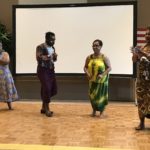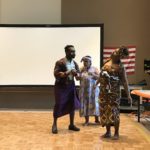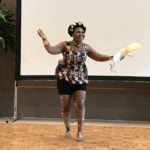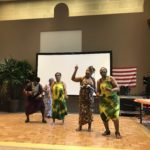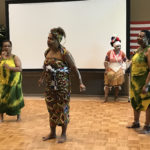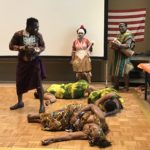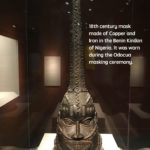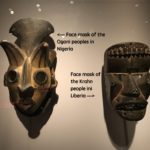Smithsonian NMAA event review: “The Art of the Masquerade: An Artist-in-Residence Miniseries”
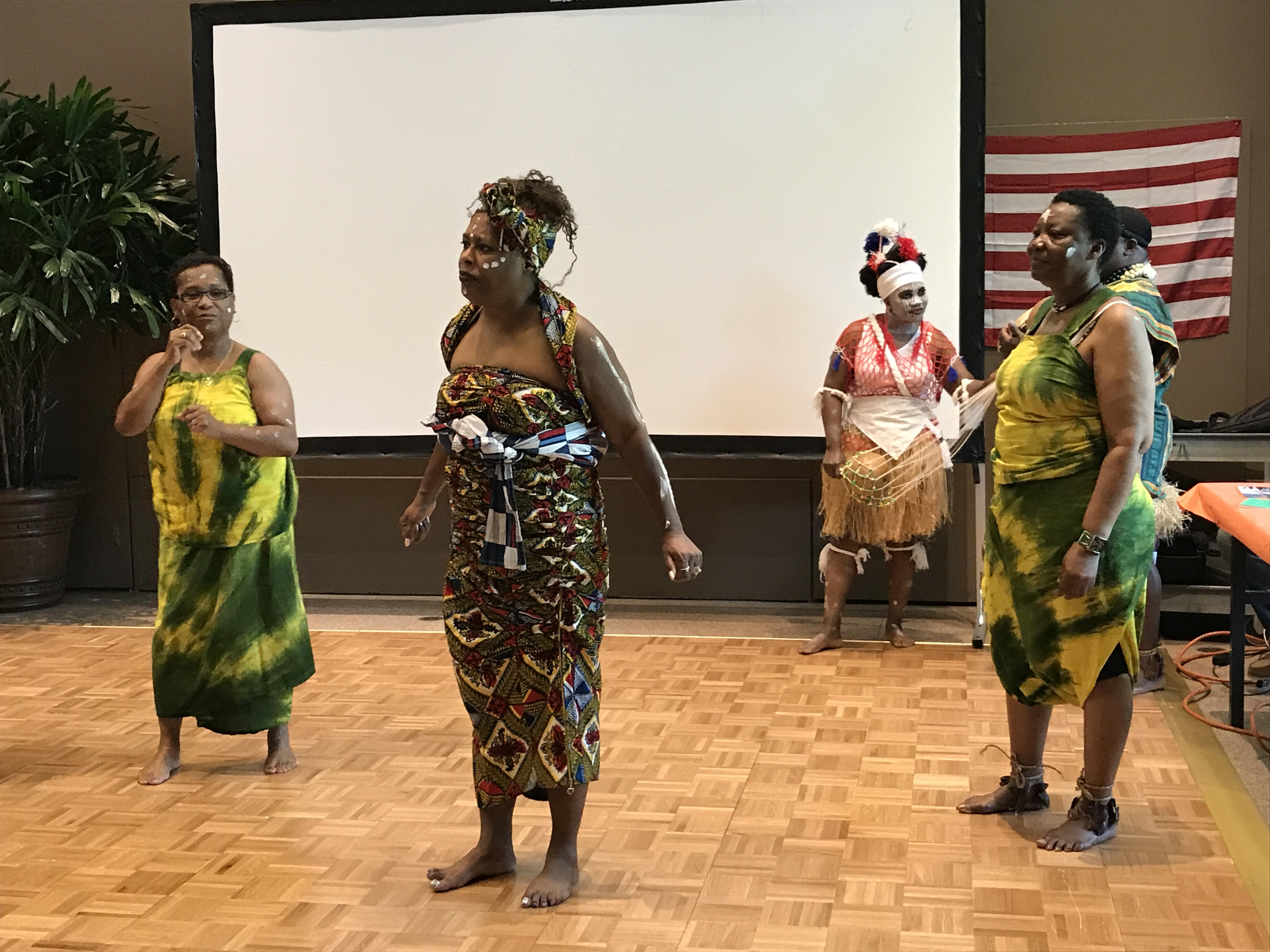
Guest post: Echo Sun, UC Berkley
On July 14th, the Smithsonian National Museum of African Art held a cultural event called “The Art of the Masquerade: An Artist-in-Residence Miniseries”. Before attending the event, I thought it would be an introduction to the crafting technique of masks of different materials and forms. Instead, I discovered that masquerade is actually a form of performance art! I was amazed to see performers that came all the way from Africa wearing colorful feathers, paints, native clothing, playing indigenous instruments and proudly showcasing their Masquerade dance. From the lecture and the performance I learned that Masquerade is a very distinctive kind of performance, long embedded in the cultures of many African communities. It is a form or oral tradition that embodies the communal inheritance of the art, craft, and religious rituals of Africa. The masquerade performance conveyed massages of the vitality of life and celebration of nature to the audiences, which are key elements of African culture.
As the speaker, Joe Gbaba, repeatedly lamented the widespread negligence of African art and called for cultural inclusiveness, I recalled my own ignorance regarding the art of masquerade. According to Gbaba, African arts and culture are significant because they not only form the basis of African civilization, but also the genesis of artistic expressions in all over the world, as mankind originated from the African continent. He views African culture as a source of life and wisdom for all human and called for broader acknowledgement of and respect for African art. The Dehkontee Artists Theatre, therefore, aims to expand the African/ Liberian history and culture worldwide. It seems to me that cultures, like components of the natural world, can not survive without an “ecosystem” in which they interact and “cross-fertilize” with each other. Therefore, ARCH’s efforts to protect individual cultural heritage sites have far-reaching effect on the preservation of cultural heterogeneity, and humanity, in the world.
Discover more:
Link to the Smithsonian Institution’s page for this event; link to the NMAA’s upcoming events page
Link to the NMAA homepage

